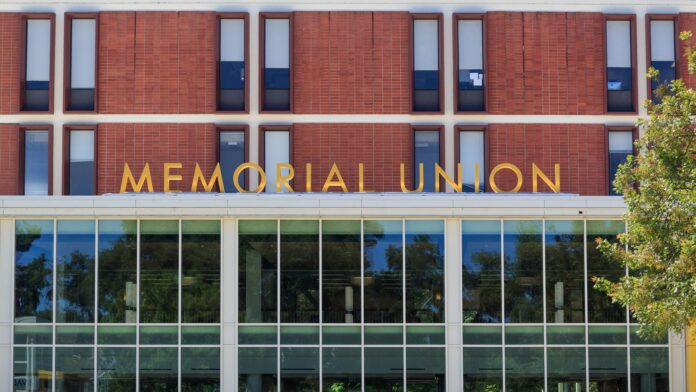Senators highlight innovation of units, committees amid COVID-19
With COVID-19 disrupting the plans of ASUCD units and committees, members of the association’s student government and leadership have emphasized the visibility of available resources to continue supporting students.
In terms of academics, ASUCD Student Advocate Ashley Lo said she is glad to see that the Academic Affairs Commission, for example, has proposed ways to alter grading policies in order to be more accommodating for students during this time. Lo has been in contact with the director of the Office of Student Support and Judicial Affairs (OSSJA) to address issues that may arise with online instruction, such as additional reports of plagiarism or cheating and collaborating with peers.
“I plan to start having online advising soon for students through the Student Advocate’s Office for anyone who may be in a situation where they’re accused of any sort of academic misconduct,” Lo said. “I want to take the training that I got from our Campus Judicial Board Director to advise [students] through that process, tell them what rights they have and how they can best prepare for their meetings with OSSJA.”
Some student senators have also worked with their respective adopted units and committees to aid in fulfilling their specific missions, goals and scheduled programming for Spring Quarter while adjusting to public health and campus directives.
Senator Khalil Malik, who readopted The Pantry and the Mental Health Initiative (MHI) for Spring Quarter, highlighted a few of the ways his adopted units and committees have continued to provide resources to students.
For example, for Mental Health Awareness Month in May, MHI had originally planned to host in-person events to address the mental health needs of marginalized folks, such as formerly incarcerated students and LGBTQIA+ students. MHI is working on moving its programming online.
“One of the things MHI is doing very successfully is partnering with other campus organizations and clubs for each of their events,” Malik said. “They are able to promote their events through their own connections and the organizations that they partner with can bring their own crowd in to increase the audience, which is so important, especially since it’s so hard to get the word out at this time.”
The Pantry has partnered with the Basic Needs Center on campus, Aggie Compass, to implement a grocery bag program in which students can sign up to receive a prepared grocery bag once a week. The grocery bags, prepared by Pantry volunteers who follow social distancing guidelines, are spaced out in the Quad area for students to pick up without needing to interact with others.
Malik called Ryan Choi, the director of The Pantry, as well as Deborah Widjaja and Cindy Chen, the directors of MHI, and their team of volunteers “heroes” for taking on these new responsibilities.
Senator Shreya Desphande has also engaged with their adopted units and committees to check in with them and offer assistance. Deshpande also adopted MHI. Among other units they adopted were the Disability Rights Advocacy Committee (DRAC), Housing Advising for Undergraduate Students (HAUS) and Aggie Reuse.
“I had a conversation with the Aggie Reuse unit director [Elisabeth Huynh] and focused it around their values of upcycling, diverting waste from landfills and engaging her with how we can move this online and how we can plan for the future,” Deshpande said.
Deshpande said they are working with HAUS to tackle housing insecurity, which has been a prevalent concern during this pandemic.
“HAUS is really important, especially now with the coronavirus [because] people don’t have homes or lots of folks don’t have a place to shelter under shelter-in-place, so it’s a really big avenue for ASUCD to expand its advocacy and increase its influence as the student voice both in the City of Davis and on campus,” Deshpande said.
In efforts to increase visibility of resources to students during this time, Deshpande said ASUCD has strengthened its social media campaigns to ensure that available resources are being advertised.
“We also have three mass emails that the executive team gets to send out every quarter and it reaches every undergraduate student, so they’re always staying connected that way,” Deshpande said.
As a personal project, Malik is promoting the ASUCD newsletter and encouraging senators to gather content from their adopted units and committees to share with students.
“The newsletter is so that students might feel that they’re a little less disconnected and that they know where to find resources, especially now that we can’t just put a flyer on a bulletin board,” Malik said.
Malik also stated that the slate he ran on, BASED, is creating a graphic with Senators’ office hours because students may not know where to find that information.
Senators’ office hours remain available online each week to maintain outreach to and engagement with students. Senate meetings are also hosted virtually and remain open to anyone interested in attending.
Written by Graschelle Fariñas Hipolito — campus@theaggie.org









